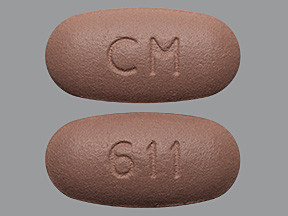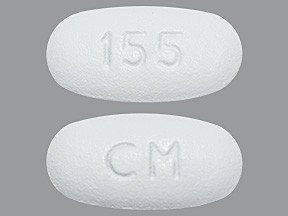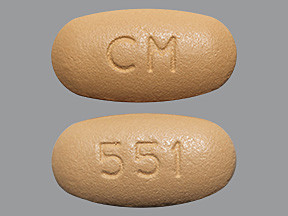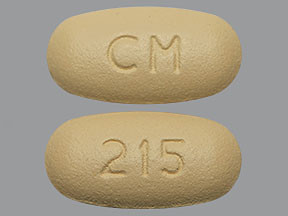CANAGLIFLOZIN/METFORMIN - ORAL
PHONETIC PRONUNCIATION: (KAN-a-gli-FLOE-zin/met-FOR-min)
COMMON BRAND NAME(S): Invokamet
GENERIC NAME(S): canagliflozin/metformin HCl
Uses
USES: This medication is a combination of 2 drugs: canagliflozin and metformin. It is used with a proper diet and exercise program to control high blood sugar in people with type 2 diabetes. Controlling high blood sugar helps prevent kidney damage, blindness, nerve problems, loss of limbs, and sexual function problems. Proper control of diabetes may also lessen your risk of a heart attack or stroke. This medication works by helping to restore your body's proper response to the insulin you naturally produce. It also increases the removal of sugar by your kidneys, decreases how much sugar is made in your liver, and decreases how much sugar your body takes in through your stomach and intestines.
How to use CANAGLIFLOZIN/METFORMIN - ORAL
HOW TO USE: Read the Medication Guide and, if available, the Patient Information Leaflet provided by your pharmacist before you start taking canagliflozin/metformin and each time you get a refill. If you have any questions, ask your doctor or pharmacist. Take this medication by mouth as directed by your doctor, usually twice a day with meals. Take this medication regularly to get the most benefit from it. To help you remember, take it at the same times each day. Drink plenty of fluids while taking this medication unless otherwise directed by your doctor. The dosage is based on your medical condition, response to treatment, and other medications you may be taking. Be sure to tell your doctor and pharmacist about all the products you use (including prescription drugs, nonprescription drugs, and herbal products). To reduce your risk of side effects (such as upset stomach), your doctor may direct you to start this medication at a low dose and gradually increase your dose. Follow your doctor's instructions carefully. Check your blood sugar regularly as directed by your doctor. Keep track of the results, and share them with your doctor. Tell your doctor if your blood sugar results are often too high or too low. Your doctor may need to adjust your diabetes medication, exercise program, or diet.
Side Effects
Precautions
Interactions
Overdose
Images

- color
- purple
- shape
- oblong
- imprint
- CM, 611
Reviews
Faq for CANAGLIFLOZIN/METFORMIN - ORAL
Canagliflozin/Metformin is an oral medication that combines two diabetes medications: canagliflozin and metformin. It helps control blood sugar levels in individuals with type 2 diabetes.
Canagliflozin works by preventing the kidneys from reabsorbing glucose, leading to its elimination through urine. Metformin primarily works by reducing the amount of glucose produced by the liver and improves the body's response to insulin.
Canagliflozin/Metformin is used to improve glycemic control in adults with type 2 diabetes. It is typically prescribed alongside a healthy diet and regular exercise program.
Common side effects may include frequent urination, increased thirst, genital yeast infections, urinary tract infections, gastrointestinal issues (nausea, diarrhea), and low blood sugar (hypoglycemia).
The medication is usually taken by mouth twice a day, with meals, or as directed by your doctor. It is important to follow the dosage instructions provided by your healthcare professional.
Canagliflozin/Metformin can be used alone or in combination with other diabetes medications, depending on the individual's specific needs and their healthcare provider's recommendations.
Canagliflozin/Metformin may not be suitable for individuals with severe kidney problems, a history of allergic reactions to any of its ingredients, or those in a state of diabetic ketoacidosis. It is important to consult with a healthcare professional to determine if it is safe for you.
Yes, Canagliflozin/Metformin has been associated with weight loss in some individuals. However, the effect may vary from person to person.
The medication may start to lower blood sugar levels within a few days to a week. However, it is important to continue taking it regularly as prescribed to maintain glycemic control.
Warning
WARNING: Rarely, too much metformin can build up in the body and cause a serious (sometimes fatal) condition called lactic acidosis. Lactic acidosis is more likely if you are an older adult, if you have kidney or liver disease, dehydration, heart failure, heavy alcohol use, if you have surgery, if you have X-ray or scanning procedures that use iodinated contrast, or if you are using certain drugs. For some conditions, your doctor may tell you to stop taking this medication for a short time. Ask your doctor or pharmacist for more details. Stop taking this medication and get medical help right away if you have any symptoms of lactic acidosis, such as unusual tiredness, dizziness, severe drowsiness, chills, blue/cold skin, muscle pain, fast/difficult breathing, slow/irregular heartbeat, or stomach pain with nausea/vomiting/diarrhea. Canagliflozin may rarely increase the risk of losing a lower limb. This risk may be greater in people who have a history of heart disease, blood circulation disease (peripheral vascular disease), nerve problems (neuropathy), foot ulcers, or previous loss of limbs. Talk to your doctor for more details. Tell your doctor right away if you have any pain/tenderness/redness/swelling/sores on your legs and feet.
Disclaimer
IMPORTANT: HOW TO USE THIS INFORMATION: This is a summary and does NOT have all possible information about this product. This information does not assure that this product is safe, effective, or appropriate for you. This information is not individual medical advice and does not substitute for the advice of your health care professional. Always ask your health care professional for complete information about this product and your specific health needs.



No Reviews Yet